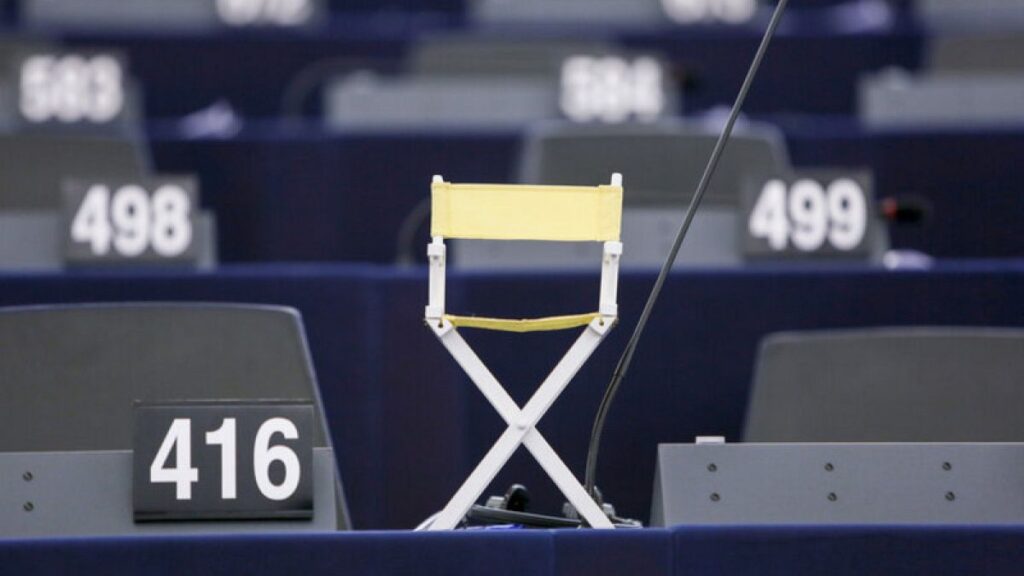Since 2012, ordinary citizens have enjoyed the democratic right to call for new EU law to be created on specific issues through the European Citizens’ Initiative (ECI).
Since then, 121 proposals have been submitted, some of them truly original.
The ECI allows any group of citizens to pitch the European Commission legislative proposals on issues where the EU has authority.
While most proposals focus on serious policy concerns such as health, animal welfare, or consumer rights, a handful buck the trend and are pretty strange.
Thus ECIs have ranged from requests for a complete ban on animal farming through a call for the establishment of a special European holiday to honour former Italian Prime Minister Mario Draghi to a pitch for the European anthem to be sung in Esperanto.
How a European Citizens’ Initiative works
Any ECI initiative must be proposed by at least seven EU citizens from as many member states. Once the initiative is approved, proponents have twelve months to garner a million signatures from citizens of voting age. These signatures must be drawn from at least seven EU countries, with the numbers meeting a minimum national threshold in each case.
The signatures can be gathered either online or on paper. When the required number has been collected and verified, the proposal is formally submitted to both the European Commission and the European Parliament.
The Commission must then respond within six months. While it is not legally required to propose new legislation, it must explain publicly whether it plans to act on the issue—and if not, why it has chosen not to do so.
Which initiatives have made it?
Currently, seven initiatives are actively collecting signatures. Among them, two are receiving particularly strong support. The first – titled “Stop Destroying Videogames” – aims to prevent publishers from remotely disabling games after release. This practice is common with online games that become unprofitable once player numbers drop, leaving consumers without access to products they purchased.
The second, named “Stop Cruelty Stop Slaughter”, advocates for the gradual closure of all animal farms in the EU. It proposes reducing the number of such farms by 50% each year and supporting the transition to plant-based proteins and lab-grown meat.
This latest animal welfare campaign follows a broader trend. Of the ten initiatives that have so far reached the one-million-signature threshold and prompted an official response from the Commission, several have focused on protecting animals or the environment.
One called for a complete ban on fur farming, while another sought to end trade of shark fins in the EU. Another initiative calls for a ban in the EU of the widely used and controversial herbicide glyphosate. Another urges the EU to ban the use of cages and sow stalls in farming, aiming to improve the living conditions of livestock.
Not all initiatives have centred on environmental or animal rights. One particularly contentious proposal called on the EU to end funding of any activity that involves the destruction of human embryos: effectively seeking to curb research using embryonic stem cells, sparking debate on scientific freedom and bioethics.
The weirdest Citizens’ Initiatives
Over the years, some proposals have stood out not only for their ambition but also for their eccentricity. Since 2012, a total of 121 initiatives have been registered, of which 23 were rejected during the registration phase.
Among the most unusual was a 2012 proposal to have the European Anthem sung exclusively in Esperanto, the artificial language based on roots from the chief European languages. The Commission turned the request down, claiming there was no legal basis available to support such a change.
In 2013, another initiative called for the banning of prostitution throughout the EU, the following year, a proposal even suggested abolishing the European Parliament. In 2018, amid the Brexit negotiations, one initiative demanded an EU-wide referendum on the United Kingdom’s decision to leave. All of these were rejected by the Commission on the grounds that no legal basis existed within EU law to enact the proposed changes.
Other proposals were accepted but failed to gather enough signatures to move forward. One such case was the idea of declaring July 26 as the “European Day of Whatever It Takes”, a tribute to a speech by former European Central Bank President Mario Draghi. But the initiative only attracted 254 signatures, mostly from Italy and France.
Another campaign aimed at limiting the rollout of 5G networks gained more traction, with over 83,000 supporters, but still fell far short of the required million.
Proposals for universal basic income across the EU have also been floated more than once. Both a 2013 and a 2020 attempt failed to reach the signature threshold, suggesting the idea has yet to gain widespread support among Europeans.
Read the full article here
